7 reasons ultrabook can create technology revolution
The developments at the consumer electronics exhibition 2012 (CES 2012) recently in Las Vegas (USA) led many people to believe that the ultra-thin, ultra-light (ultrabook) laptops will make a revolution. technology this year.
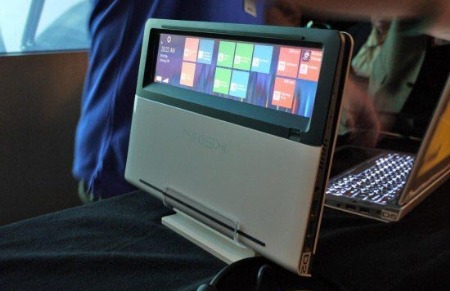
Right from the end of last year, many technology experts have forecast 2012 will be the time of ultrabook, and to create a new wave in the market of laptops are being dominated by tablet PCs, technology firms will rush into this area.
And the landing of ultrabooks has actually taken place in the annual technology party in America. What the technology companies bring to CES 2012 is likely to make consumers early after a period of running after the tablet movement.
Here are 7 reasons, according to PC World magazine, enough to make us believe that the technology revolution created by ultrabook will happen.
1. Thinner, lighter
Just like its natural argument, recently launched supercomputers are thinner and lighter than traditional product lines. Intel has launched standard for ultrabook, as maximum as 0.8 inch thick, weighs no more than 1.4 kg.
Even with a number of high-end ultrabooks, the thin, light concept will be further standardized, so it is much easier to carry them around.
2. Durable battery
Another Intel standard for ultrabooks is that they must have a battery life of at least 5 hours, or better than 8 hours or more. For those who use or have to move, battery life is one of the important selection criteria. With an ultrabook that can run for 8 hours, users can work all day without having to carry a charger or a spare battery with them.
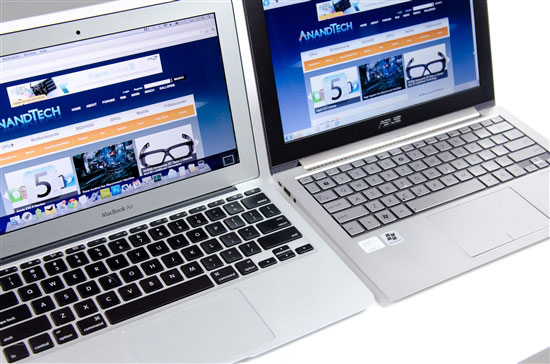
New Ivy Bridge chips from Intel are expected to be released later this year, which will help ensure the energy for the machine to be more stable. Ivy Bridge chips are said to be more energy-efficient and more efficient, allowing ultrabooks to last longer than 8 hours of battery life.
3. Hybrid between tablet and laptop
Although traditional notebooks have become superior, the tablet still has a better position and dominance. Therefore, ultrabook's mission will have to become a middle device, a hybrid product between tablets and laptops, with optimal experience.
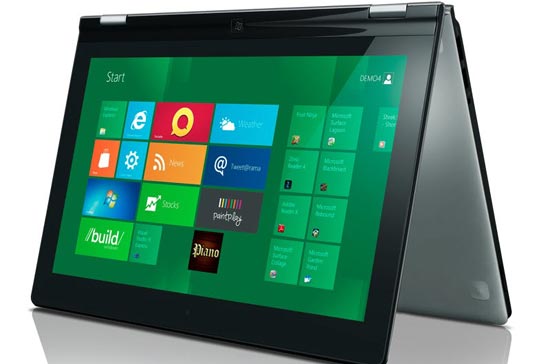
Computer maker Acer has announced a hybrid tablet like that. When adding a keyboard, it looks like an ultrabook, but when there's only the screen, it becomes a tablet. At CES 2012, Lenovo also launched a similar product called IdeaPad Yoga.
4. Touch screen
Pure personal computerists may object to the same view that the touch screen is replacing the mouse and keyboard, but it's a fact, a new trend.
Metro interface of Windows 8 operating system is designed to support touch. The future ultrabook line with Windows 8 will be equipped with a touch screen, allowing users to experience the enjoyment of handling tasks by touching, dragging, dropping, directly on the screen, while still can use the traditional screen with keyboard, mouse or trackpad.
5. Voice recognition
If the current technology revolution is a touch screen, the future will be voice recognition. Ordering the computer to perform voice tasks has been around for a long time, but it wasn't until Apple put it on iPhone 4S late last year that the technology really became a trend.
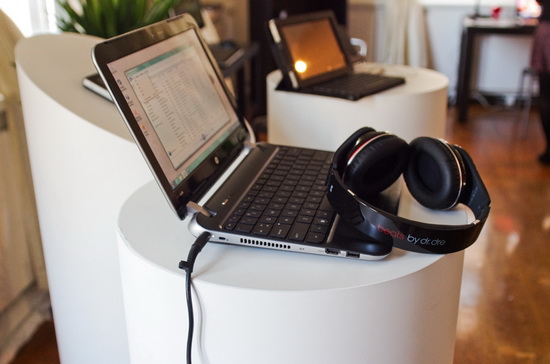
A series of devices introduced at CES 2012 can be controlled by voice. Intel recently revealed it is working with another company to bring voice recognition features like ' Siri on iPhone 4S ' to ultrabook products.
6. Security capabilities
Intel is also working hard to further develop a security system for computers. The world's leading chip group has spent a large amount of money to acquire security firm McAfee, hoping to bring security features into future products.
Currently Intel has provided anti-theft technology (AT) and recognition technology (Intel IPT) for its ultrabook hardware. In particular, AT technology helps users disable data access to their lost personal computers anywhere, while Intel-IPT helps protect personal information and personal information. use.
7. Near area communication (NFC)
At CES 2012, a number of technology companies have launched ultrabook support NFC technology (short range wireless communication standard, used on some smartphones such as Samsung Galaxy Nexus), such as HP's Envy 14 Specter.
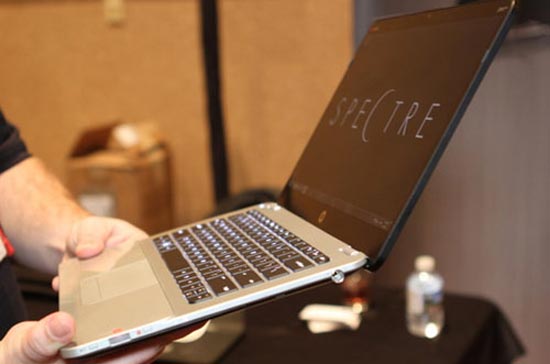
With this technology, HP's ultrabook is not only supported by the payment capability of Samsung manufacturer's Galaxy Nexus smartphone, but can also share information with other devices that also support NFC.
Great bar
It can be said, ultrabook has been gathering all the technologies and features that users need to search on traditional laptops, with a clever combination of superior points on netbooks and computers. table.
With such a strong structure, there is no reason not to believe that ultrabook will create a revolution in the field of mobile computing technology on a global scale. From the current perspective, it can be seen, the future of this product line is very bright.